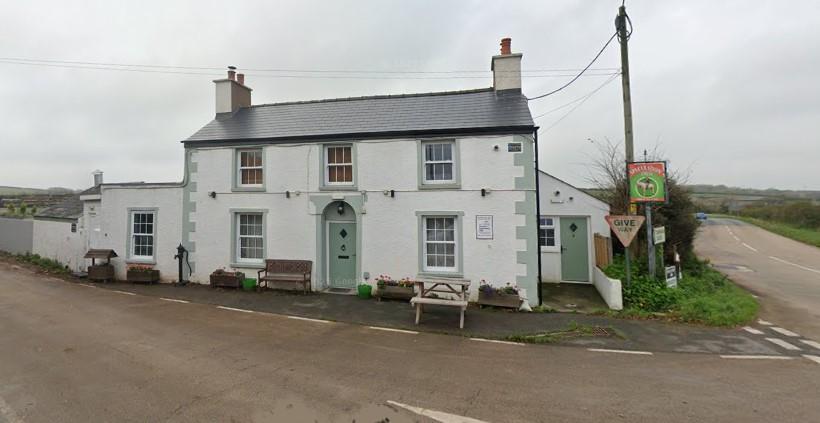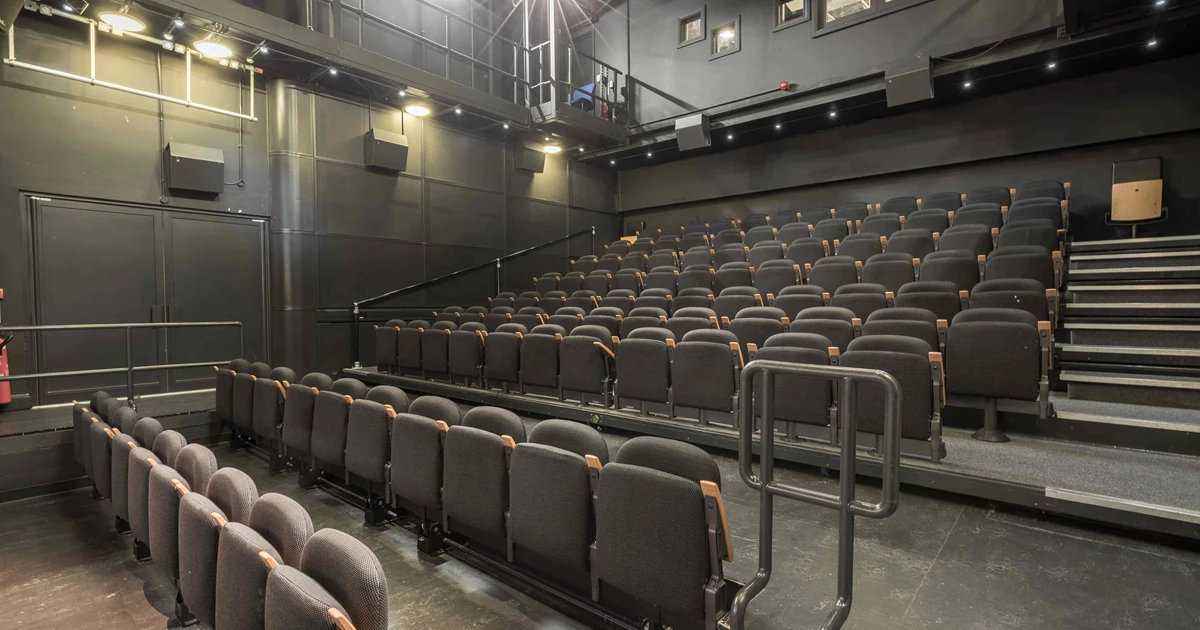News
The Speculation Inn pub seeks permission to undergo facelift

A RETROSPECTIVE scheme for works at a historic Pembrokeshire pub has been submitted to county planners.
In an application to Pembrokeshire County Council, Chris Grey seeks permission for retrospective works for additional shower/toilet facilities for the Speculation Inn Public House and authorised Caravan & Camping Club, near Hundleton, and a replacement store.
A supporting statement through agent Hayston Developments & Planning Ltd says: “The premises has changed hands in recent years and the pub has been sensitively refurbished and the rear paddock operates under a Camping and Caravanning Club exemption and has proven very popular.
“The applicants seek two expansions, which are mainly in retrospect and relate to the following: Bespoke separate toilet / showers for the authorised campsite / tourer site. A small facility is available in the pub, however, this is not ideal for campers who need showers.
“Replacement of a corrugated building attached to the pub, which had collapsed, with a replacement store for the Speculation Inn and its various function.
“The toilets are positioned to the rear of the Speculation Inn and its beer garden and use an existing treatment plant and soakaways for roof water.”
It adds: “It is the applicant’s intention to retain the current toilet/shower facilities offered to visitors who wish to park their caravans at the Speculation Inn Meadow certified site, or who have come with the intention of camping, and by expanding their offering with a further toilet / shower block, all being more appropriate for modern camping and caravanning client expectations and being Covid friendly.
“A new British Standard compliant package treatment plant with associated drainage fields is now installed ensuring that the clarified water will not cause diffuse water pollution (DWP) in the downstream water network.”
It concludes: “It already brings a benefit in regard to providing quality tourism operations with required enhanced facilities.”
The application will be considered by county planners at a later date.
Community
Community exhibition showcases ateb customers’ creativity at Torch Theatre

A NEW pop-up exhibition celebrating local history, identity and creativity is set to open at the Torch Theatre in Milford Haven, showcasing artwork created by customers and partners of ateb Housing Association.
The free exhibition brings together a year’s worth of creative work produced through the Wales REACH project, which encourages participants to explore Pembrokeshire’s heritage while building confidence, skills and social connections.
Through workshops, visits and shared activities, residents have developed a varied collection of personal and community-focused pieces reflecting their own experiences and the stories of the county.
Among the featured works is Museum in a Bag, a reflective look at identity and self; REACH for the Landsker Line, which examines Pembrokeshire’s cultural divide through Norman castles and the Welsh language; and REACH Back in Time, a textile sculpture inspired by the history of Milford Haven.
An interactive scroll will also be on display, inviting visitors to add their own memories and reflections, alongside an oral history recorded by an ateb customer and disability rights advocate, offering a powerful first-hand account of life and resilience.
Organisers say the project has had clear benefits beyond the artwork itself.
Rex, an ateb customer who took part, said: “I have enjoyed the planned sessions – being able to get out and about and take part in the activities where possible. I also enjoyed the social aspect, mixing with other residents, sharing our local knowledge of the area and learning new facts.”
Another participant, Joan, added: “It has revived my school-level love of history. I am loving all the given work with interest.”
Project Officer Anne Kerr-Hughes said she had seen noticeable improvements in wellbeing and confidence.
She said: “We’ve noticed so many positive changes – from people trying new things and learning new skills to gaining the confidence to travel independently. One lovely outcome has been more residents using the local bus service after trips to the archives in Haverfordwest. It’s been heart-warming to see.”
The Wales REACH project has been supported by funding from The National Lottery Heritage Fund, with partners including Open University in Wales, Amgueddfa Cymru and People’s Collection Wales.
The exhibition runs from Tuesday, February 10 to Saturday, February 14, with visitors welcome to drop in during opening hours.
Entry is free and open to all.
Entertainment
Community film season launches at Torch Theatre with audience-picked programme

Grant from Ffilm Cymru Wales helps bring affordable independent cinema to Pembrokeshire
A SEASON of independent films chosen by local audiences is coming to Milford Haven this spring, as the Torch Theatre hosts a special programme designed to celebrate bold storytelling and community cinema.
Running from February through to mid-April, the Community Choices season has been made possible thanks to Wales-wide grant funding from Ffilm Cymru Wales. The scheme supports independent exhibitors to bring diverse and inspiring films to screens across the country.
At the Torch, audiences were invited to take part in programming workshops to help select the titles themselves. The final line-up reflects a mix of Welsh-language work, environmentally themed films and stories that break down social and economic barriers, ensuring something for all tastes.
Chelsey Gillard, the theatre’s Artistic Director, said: “We asked you, the people of Pembrokeshire, what films you wanted to see at the Torch – and we listened. There’s a terrific variety in this season, from family favourites to powerful dramas. We’re very grateful to Ffilm Cymru Wales for the funding that allows us to bring these wonderful films to the big screen, and we look forward to giving everyone a warm Torch welcome.”
The programme opens with Mr Burton on Sunday, February 8 at 4:15pm, followed by Flow on Tuesday, February 17 at 4:45pm. Fantastic Mr Fox screens on February 19 at 4:45pm, with Moonlight closing the month on Friday, February 20 at 6:15pm.
March’s line-up includes Born Free on March 4 at 2:15pm, Earth on March 12 at 11:00am, Sinners on March 15 at 7:00pm, Booksmart on March 22 at 2:00pm, and Gwledd (The Feast) on March 27 at 8:00pm.
The season continues into April with I Swear on April 2 at 2:00pm, One Battle After Another on April 5 at 4:00pm, and This is Spinal Tap on April 12 at 4:00pm, bringing the Community Choices series to a close.
All tickets are priced at £4 and include a free tea or coffee, helping to keep the screenings affordable and accessible for everyone.
For tickets and full details, visit the Torch Theatre website or call the box office on 01646 695267.

Education
Family warns school move could harm child with ultra-rare condition

As closure looms, campaigners say Meidrim pupils thrive in ‘caring community’ as council consultation raises fears for vulnerable learners
A SMALL village primary school at the heart of rural Carmarthenshire is at the centre of a growing campaign to prevent its closure, with supporters warning that vulnerable children could suffer serious consequences if it shuts.

The Cymdeithas yr Iaith has backed efforts to secure the future of Ysgol Bentre Gymraeg Meidrim, describing small rural schools as “caring communities” that provide vital stability for children with additional needs.
At the centre of the case is pupil Tommy Webber, who lives with Bloom Syndrome — an ultra-rare genetic condition which causes complex medical issues and additional learning needs. He is believed to be the only child in Wales diagnosed with the condition.
Medical professionals have advised the school that continuity, routine and trusted relationships are essential for Tommy’s wellbeing. Any disruption — including changing schools, longer daily travel or unfamiliar staff — could have a negative impact on his health, emotional security and educational progress.
Supporters say the small, close-knit nature of Meidrim has allowed staff to provide consistent, personalised care that would be difficult to replicate elsewhere.

However, Carmarthenshire County Council opened a statutory consultation on Thursday (Jan 16) on proposals to close the school, prompting concern from parents, campaigners and language groups.
Speaking on behalf of the Carmarthen region, Cymdeithas yr Iaith representative Sioned Elin said Tommy’s experience reflects a wider truth about the role of small rural schools.
“Tommy’s story shows how a small school can be a safe haven for children with additional needs,” she said. “Education here is genuinely child-centred, and pupils are supported as part of a caring Welsh-speaking community.
“In the same school there is also a deaf pupil, and the other children have learned some sign language so they can communicate with her. That demonstrates how this kind of environment benefits every child, not just one.”
She added that decisions about closures should not be based solely on budgets or pupil numbers.
“The impact cannot be measured purely in financial terms. The question must be whether any alternative provision can truly meet the needs of children who rely on stability and familiarity every day.”
Campaigners argue that losing the school would not only affect education standards but would also weaken the Welsh language and the social fabric of the village.
A supporting letter from hospital clinicians has been submitted as part of the consultation process.
Residents are now urging the council to recognise the wider value of small rural schools before making a final decision.
-

 Crime18 hours ago
Crime18 hours agoSex offender jailed after living off grid in Pembrokeshire and refusing to register
-

 News2 days ago
News2 days agoPrincess of Wales visits historic Pembrokeshire woollen mill
-

 Crime6 days ago
Crime6 days agoPembroke man accused of child sex offences sent to Swansea Crown Court
-

 Health4 days ago
Health4 days agoDoctor struck off after sexual misconduct findings at Withybush Hospital
-

 Community6 days ago
Community6 days ago50s women threaten legal action over pension compensation refusal
-

 Business7 days ago
Business7 days agoEight-year prison sentence after vehicle stop uncovers drugs worth over £150,000
-

 Crime2 days ago
Crime2 days agoHakin man’s appeal delayed again as Crown Court seeks guidance on insurance law
-

 Crime6 days ago
Crime6 days agoManhunt intensifies after woman seriously injured in Carmarthen park stabbing



























